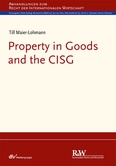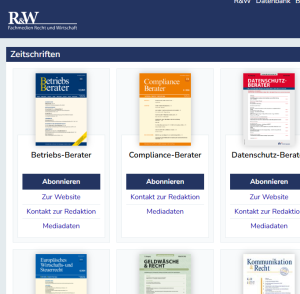1. Unharmonized domestic sales law and property law
4
Property in goods and sales contract law are considered intertwined in many national legal systems. Although the categorization as two different fields of law is broadly accepted and research has accordingly become more specialized,7 there remain many connections between sales contract and property law. The importance and number of these connections differs widely between different legal systems, but for example in England, they are so significant as to prompt Bridge to refer to a “title-fundamentalism” in the law of sale,8 and Goode to state that “[t]he impact of the location of the property is all-pervasive”.9 Llewellyn, who came upon a similar legal situation in the USA when drafting the Uniform Commercial Code (UCC), commented in prosaic fashion that “[n]obody ever saw a chattel’s Title.”10 In this spirit of legal realism, the UCC aims at avoiding the use of property or other single concepts to decide factually unconnected questions.11
3 5
While under many national laws the number of connections between property and sales law have been reduced, the remaining connections can be categorized depending on the concerned parties: Property law can have relevance between the seller and the buyer, and it can simultaneously be of significance vis-à-vis third parties. Between the seller and the buyer, property and its transfer might influence the very characterization of whether the contract at hand is in fact a sales contract, whether the seller has fulfilled his or her obligation to transfer the property as far as such an obligation exists, and whether the seller can claim the purchase price. Moreover, the passing of the risk of loss under some national sales laws is linked to the transfer of property.12 The sales contract may also be relevant for questions linked to property, since the (re-)transfer of property might be dependent on a mere avoidance of contract,13 or a vindication claim based on property might only be substantiated if there is no sales contract conferring a right to possession anymore. Vis-à-vis third parties, property might have decisive relevance, e.g., for creditors in cases of bankruptcy, liability in conversion, taxation, criminal law, insurable interest, and more.14
6
It is important to keep these (depending on the respective national law, diverging) consequences of property and sales law in mind when discussing differences and perspectives for unification or harmonization. Since national law makers mostly write laws with cases in mind to which the respective legal system would apply to in its entirety, solutions to existing problems can be provided through contract law or property law. National property law, sales law and other areas of these national legal systems can, thereby, counterbalance each other’s weaknesses and specifics.
2. CISG and national property law
7
The same cannot be said of the CISG and the respective national property laws. Since Article 7(1) of the CISG requires the interpretation of the Convention to take into account its international character and the need to promote uniformity in its application, the interpretation of the CISG cannot, at first sight, cater to specifics of the applicable property law. On the other hand, the national property law cannot be interpreted only to be compatible with the CISG. It must also maintain compatibility with national contract law.
4 8
If it is correct that sales law is “in one phase part of the law of contract, in another phase part of the law of property”,15 it is notable that the CISG has unified only one part of the equation. In contrast, when national sales laws were codified without simultaneously codifying all aspects of property law, these codifications nevertheless often contained rules on property and its transfer.16 Also, when commercial law in parts of Africa was unified by the Acte uniforme relatif au droit commercial général of 1997 (OHADA Uniform Commercial Law 1997) the interplay with property was explicitly regulated in Articles 283–284.17
9
While, as mentioned above, the interplay between contract and property law under national law has been the subject of detailed research and monographies, with regard to international cases and diverging contract and property laws there is little on the topic.18 Stadler’s work “Gestaltungsfreiheit und Verkehrsschutz durch Abstraktion” is an exception and contains a full chapter on collisions between diverging laws in this regard.19 With regard to unified (sales) contract law such as the Convention relating to a Uniform Law on the International Sale of Goods (ULIS) or the CISG, there is even less on the topic. It is not possible to transplant solutions proposed with regard to national laws: Stadler, for example, has suggested that the law applicable to questions of property could follow the applicable contract law to avoid tensions.20 However, since the CISG does not contain rules on the transfer of property and there are no unified property laws that could go hand in hand with the CISG, this would not be a viable option to regulate the interplay and avoid any tensions between the CISG and national property law.
10
This study is, therefore, aimed at revealing the interplay and assessing whether tensions exist between the CISG and national property law. What influence does property and its transfer have on the CISG and contractual questions and what influence does the CISG have on national property law? 5 Therefore, the research is limited to cases within the scope of the CISG, which most notably excludes sales of immovables. Many other comparative studies have been absorbed by the isolated question of when and how property is transferred under national law, which is why this question is not addressed in much depth in this study.21 Moreover, whether property as a “lump” concept should be maintained or given up22 is not a question to be answered in this work. The focus is how the current interplay and tensions can be accurately described and how current laws, i.e. the CISG and national property laws, can be interpreted to find coherent results.



